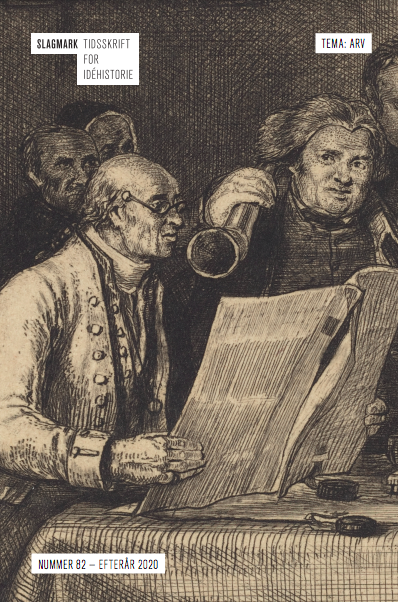Jubelåret og odelsretten: Om naturalisering av eiendomsrett og arverett
DOI:
https://doi.org/10.7146/slagmark.vi82.141047Keywords:
Inheritance, property rights, kinship, naturalisationAbstract
The rights concerning ownership to, and inheritance of, property are generally looked to as natural and taken for granted. In this article we ask why the rights of inheritance usually priorities consanguine bonds and how this arrangement originated.
As rights to property and inheritance was non-existent or only of minor importance in ancient hunter and gathering societies, we assume that these phenomena arose or became socially significant only with the development of agriculture and livestock breeding. In different agricultural societies the institutionalisation (and naturalisation) of inheritance rights took form in accordance with the kinship and symbolic systems of each. Here we take a closer look at two legal institutions in two different societies: the Jubilee of the Ancient Israelites (as accounted for in the Book of Leviticus) and the allodial rights of early mediaeval Norway (as represented in the Gulathing Law). We interpret these two institutions in terms of local kinship and symbolic systems and compare them to the ideas on natural law forwarded by John Locke, which in modern times has served as the foundation on which laws on property and inheritance are legitimised.





